OMEV JOINT INTERNATIONAL CONFERENCE
Countering Violent Extremism: New Responses to New Challenges
The Executive Board Committee of the Moroccan Observatory on Extremism & Violence (OMEV), in partnership with the Policy Center for the New South (PCNS), the “Délégation générale à l'Administration Pénitentiaire et à la reinsertion (DGAPR), and the Rabita Mohammadia of Ulema, will organise an online conference under the theme “Fighting Against Terrorism: New Challenges and New Needs”. This event will take place on February 16th- 18th February, 2021 in Rabat.
There is no doubt that the general landscape of terrorist threats in the world has witnessed both of a qualitative and a geostrategic shift during the last three years, whether at the operational level or at the geographical redeployment of terrorist organizations, with the aim of creating a kind of jamming the efforts of the international active forces in the battle to fight against terrorism and violent extremism, especially during this difficult situation that the world lives as a result of the current epidemic crisis.
Transformations started to manifest immediately after the intense attacks against ISIS' threats; in Syria and Iraq, resulting in a significant loss of its control over the territories and on its own affiliates. Right after the death of its leader Abu Bakr Al Baghdadi, ISIS fighters started searching for new safe havens, by either choosing to continue their struggle in some hotspots in Iraq and Syria, to get back homes, or by moving to settle down in new zones of tensions known as Security fragile or politically instable, mainly in Sub-Saharan Africa, Libya, Yemen, and even in some Asian countries that have witnessed an expansion and an increase in the number of terrorist attacks in these recent years.
This qualitative shift has also been reflected in and by the change of terrorist's tactics in their multiple dimensions, in their modes of attacks, in their narratives, in their tools of connection and communication, and sometimes also in their capacity to change priorities of the targeted objectives and countries.
The continuing instability in some zones like the Sahel, Libya, and Yemen and the proliferation of weapons constitute a fertile ground for the resurgence of terrorism, which impedes the efforts devoted to paralyze the movement of terrorist organizations, and extends the scope of terrorist threats in the world.
Since the beginning of the year 2020, the whole world has been experiencing an unprecedented health crisis as a result of the outbreak of the Covid-19 epidemic, that has created an emergency confusion and had undoubtedly an impact on the new terrorist landscape configuration. It had required the development of new mechanisms to assess the implications of the health crisis on countries' psychological, social, economic and political vulnerabilities and their communities in which terrorist organizations have manifested strong will to instrumentalize to handcraft advanced extremist narratives.
Worldwide fears are increasing about the comeback of foreign fighters from hotbeds of tensions, or their redeployment to areas that are still witnessing waves of violence, insecurity and instability.
Terrorist propaganda on social media and networking sites continue to impress with illusory victories or by the control of new lands to establish the dream of the "Caliphate".
The activity of extremist organizations has also witnessed a shift in the virtual world, as these organizations are no longer limited to digital means of communication as mechanisms of polarizations, recruitments, and propaganda for their extremist narratives, as this space has turned into hotbeds for terrorist targets by organizing electronic attacks on databases of states financial and media institutions. This shift represents a real security challenge that requires more international coordination to combat these new types of threats.
Among other major security and humanitarian challenges that many countries face in the current stage is to deal with the vulnerable spouses, widows, and children of foreign fighters. There are certain approaches that differ from one country to another and from one region to another as well. On the other hand, in terms of legal issues, and states’ capacity building, more coordination for better responses might be required.
Within this specific momentum of the transformations taking place in terrorism phenomenon, the CTED, GCTF, UNODC and other International Structures warn the international community about the increasing of hate speech that generates violent acts of extremist groups affiliated not only to Jihadism but also to the extreme left and extreme right wings in Europe and in the United States. In addition to that, it represents a new challenge that will not only disrupt the accumulated efforts to dry up the sources of violent extremism but also might turn into a driver for accelerating intolerance and diversifying its sources, and thus complicating the ways to confront it.
Many countries are concerned with innovative approaches to take care of offenders accused in cases of terrorism and violent extremism. UN institutions, GCTF, and others have worked harder to facilitate access to tools and capacity building for better and efficient rehabilitation and reintegration of violent extremist offenders. They have engaged in encouraging countries to adopt programs of reintegration in prisons and to take advantage of it to have successful results.
Within this area, one of the imperative distinctions to make beforehand is to make sure that the programs adopted are inclusive and cover deradicalization, disengagement, and rehabilitation.
Additionally, if the programs happen to work or not, should the states adopt appropriate tools of assessment.
Challenges in combating terrorism and violent extremism as a cross-border phenomenon create a strong motivation for strengthening both international and regional cooperation and coordination in which the North and the South gap should be excluded. Hence, the organization of this conference comes in a very critical time, characterized by several overlapping factors that increase complexity during the current epidemic crisis, which certainly have additional repercussions in creating imbalances within societies affecting their economies, political performances, and generating new public opinion’s perception on the definition of Security, Peace, and Wellbeing.
This conference wishes to provide an opportunity to discuss the developments surrounding the terrorist scene in its various dimensions, and to serve as a basis for evaluating the effectiveness of regional and international cooperation models in countering terrorism. In addition to that, it will assure a space where specialists, field experts and researchers could collectively brainstorm innovative conducts to keep pace with the new challenges of terrorism threats and violent extremism.
This webinar will be broadcasted live via the PCNS’ Facebook page and YouTube channel, with live coverage on Twitter.
Participants
This symposium brings together experts and practitioners involved in issues of terrorism and violent extremism, from different continents and countries (Morocco, Algeria, Tunisia, Libya, Mauritania, Nigeria, Senegal, Kenya, Spain, France, Italy, Switzerland, Norway, Belgium, Malta, United Kingdom, the United States of America, Austria, Italy, Portugal, Hungary, Romania, Egypt, Saudia Arabia, Philippines, regional and international institutions, most notably the United Nations Counter-Terrorism Executive Directorate).
Format
*Language: Arabic, French, English
In view of the current health emergency, the organizing committee of the conference has favoured that the conference will be organized in a dual hybrid format that includes limited number of participants and speakers (physically) and by distance participants (via the Zoom Pro application). The Organizing Committee will be aware to assure all preventive conditions for the safety of all participants and speakers.
|
Tuesday, February 16th |
|
|
13:00 - 14:00 |
Opening session |
|
14:15 - 16:15 |
Session 1: Security Challenges |
|
16:30 - 17:45 |
Session 2: Security Challenges |
|
Wednesday, February 17th |
|
|
10:00 - 11:00 |
Continued session 1 & 2 Security challenges |
|
11:15 - 12:45 |
Session 3: Intellectual and Tactical Shifts in The Narratives of Extremism and hate speech |
|
14:15 - 16:15 |
Session 4: Disengagement, Deradicalization and Rehabilitation of Former Fighters: Tools, Approaches and Assessments |
|
Thursday, February 18th |
|
|
10:00 - 12:00 |
Session 5: Women and Violent Extremism: for a new approach that transcends stereotyping. |
|
12:15 - 13:15 |
General Discussions |
|
13:15 - 13:30 |
Closing Remarks |
-
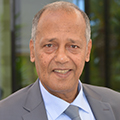
Abdelhak Bassou, Senior Fellow, Policy Center for the New South
-
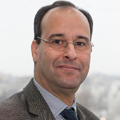
Khalid Chegraoui, Senior Fellow, Policy Center for the New South
-
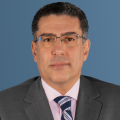
Karim El Aynaoui, President, Policy Center for the New South
-
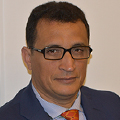
Rachid El Houdaigui, Senior Fellow, Policy Center for the New South
-
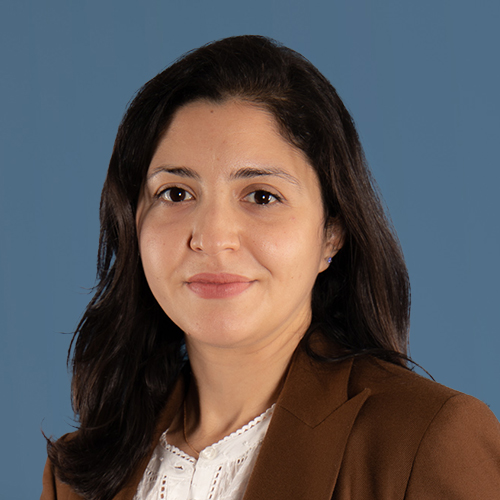
Sara Hasnaa Mokaddem, International Relations Specialist, Policy Center for the New South
-
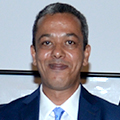
El Mostafa Rezrazi, Senior Fellow, Policy Center for the New South









